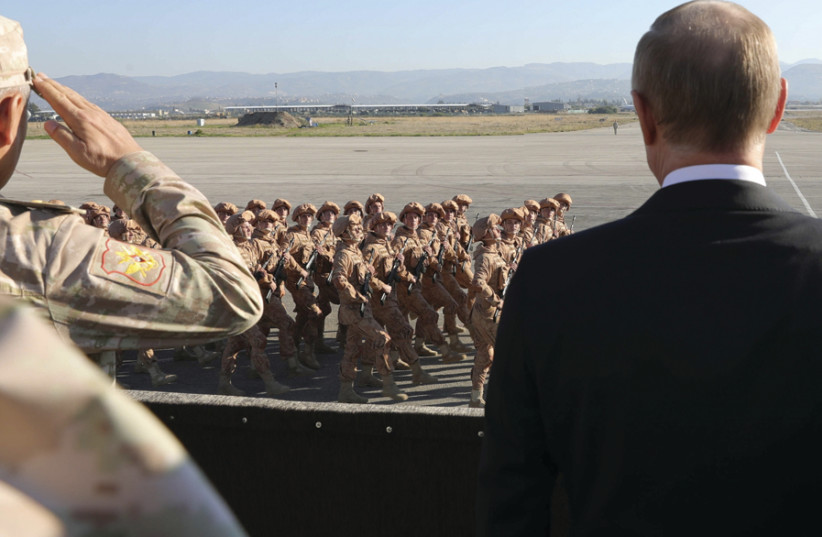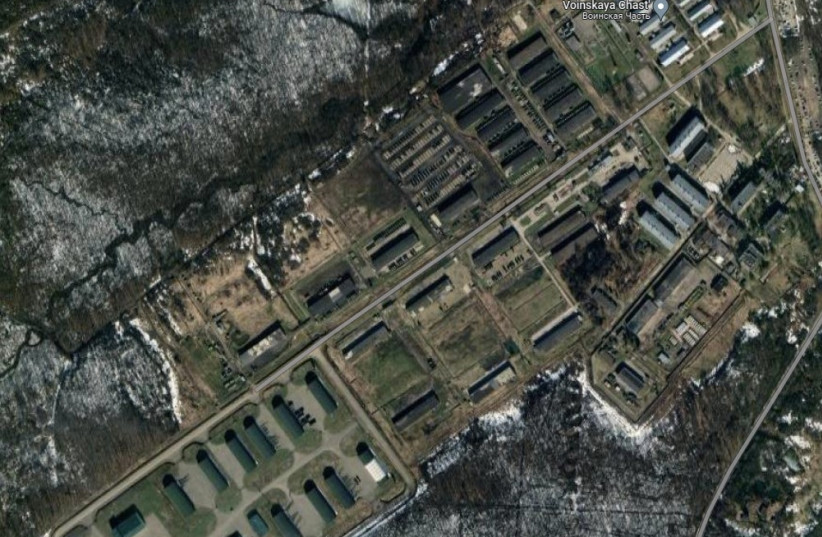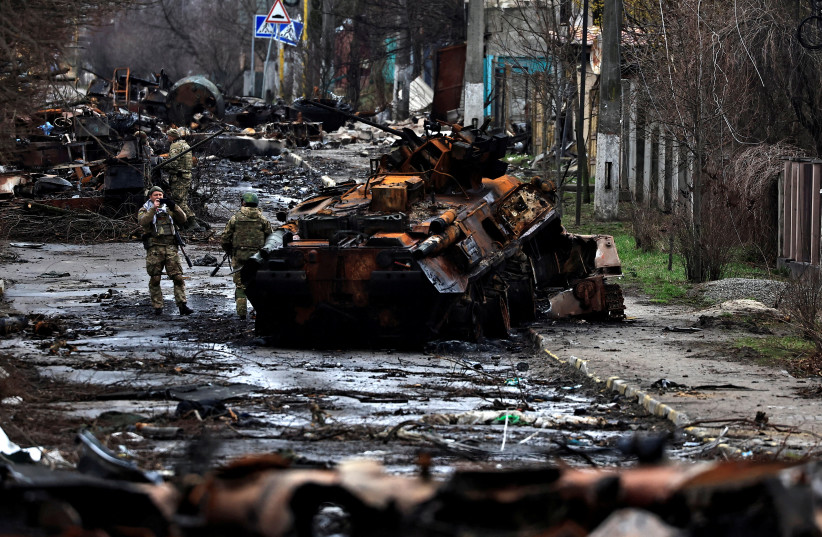It is unclear how Russia will find the manpower to staff its military to meet the demands of the recently announced expansion of its armed forces, the United Kingdom Defense Ministry wrote in a Sunday intelligence assessment.
"On 25 August 2022, the Russian Presidential Administration issued a presidential decree increasing the established strength of the Russian armed forces to 1,150,628, an increase of nearly 140,000," said the UK Defense Ministry.
"The government was instructed to provide funding to achieve this. It remains unclear whether Russia will attempt to fill this increased allocation from recruiting more volunteer ‘contract’ soldiers, or from increasing the annual targets for the conscription draft."
"Under the legislation currently in place, the decree is unlikely to make substantive progress towards increasing Russia’s combat power in Ukraine."
UK Defense Ministry
Recruitment of contract soldiers
With the war entering its seventh month, Russia has been increasingly using contracted professionals to replace soldiers in military units. On Saturday the GUR Ukrainian Intelligence directorate asserted that Moscow was engaging in a large recruitment campaign for contract soldiers on television, Internet and print media. The main focus of recruiters is alleged to be for tank crews.
GUR also claimed that the contracts were for short periods, and with little in terms of training. In May, the age limit for first-time recruits was raised, allowing citizens over 40 to enlist, The Wall Street Journal reported on Sunday.
"Fewer and fewer are willing to enter the ranks of [Russia] on a voluntary basis," said Ukrainian intelligence spokesman Vadym Skibitsky. "In addition, panic began among the population of large cities, because no one wants to simply go to serve in the armed forces, let alone go to war."
The Ukrainian Intelligence directorate said on Sunday that Russia was pursuing various strategies to replenish ranks. It claimed that Moscow was focusing on economically disadvantaged areas within the Russian Federation as sources of recruits. In mid-August, GUR even claimed that Chechen citizens were being drafted by force. In March, it was alleged that Chechen convicts were also being recruited in return for amnesty.

The Ukrainian Defense Ministry on Saturday repeated its claims that recruitment campaigns extended beyond the federation's borders into Central Asian states such as Uzbekistan, Tajikistan and Kyrgyzstan. Foreign recruits were reportedly being offered financial incentives and Russian citizenship in return for service in the Russian Armed Forces.
The UK Defense Ministry said on Sunday that "very few new contract servicemen are being recruited; and conscripts are technically not obliged to serve outside of Russian territory."
"Fewer and fewer are willing to enter the ranks of [Russia] on a voluntary basis."
Ukrainian intelligence spokesman Vadym Skibitsky
<br>Conscripts in the Russia-Ukraine War
The role in the war of conscripts, men aged 18-27 doing a year of mandatory service, has been a sensitive issue in Russia. While President Vladimir Putin initially denied that conscripts had participated in the conflict, the Russian Defense Ministry admitted in early March that about 600 conscripts had taken part in the hostilities, but had been pulled out of Ukraine when the issue was discovered. It also admitted that some conscripts serving in supply units had been taken prisoner by Ukrainian forces.
Some associations of soldiers' mothers have raised concern about their sons being sent to Ukraine. The state prosecuted around a dozen officers over the scandal.
"Conscripts are technically not obliged to serve outside of Russian territory."
UK Defense Ministry
<br>Russia's use of mercenaries
Russia has made extensive use of mercenaries since the invasion of Ukraine began. The Wagner Russian paramilitary company has been fighting on the front lines against the besieged country, and its members have even seen service as pilots. In June, Ukraine captured a fighter jet pilot who was a former Russian air force major turned Wagner mercenary. The UK Defense Ministry suggested that this indicated Russia is struggling to provide adequate aircrew for its ongoing invasion.
However, Wagner itself has also suffered manpower issues after suffering casualties, and the UK has said that it has lowered its standards of recruitment. Ukrainian intelligence has claimed that convicts have been promised full amnesty if they join the PMC, regardless of the crimes they committed. Ukraine has reported that Wagner was seeking to recruit up to 10,000 volunteers for the war.

Foreign mercenaries have also been recruited by Russia to fight in Ukraine. In April, Washington said that as many as 20,000 foreign mercenaries could be recruited. In mid-March, Putin approved a plan by Defense Minister Sergei Shoigu for the hiring of 16,000 Syrian volunteers. Ukrainian intelligence further claimed that Libyan and Serbian mercenaries were being trained in March to fight alongside Russian forces.
"Russia has lost tens of thousands of troops."
UK Defense Ministry
Low morale and high casualties
GUR's Skibitsky said that mobilizations of more people would not help the Russian war effort "because the morale of military personnel, as they conduct combat operations, decreases."
There have been numerous reports of low morale afflicting the Russian military. In late March, a report surfaced of a Russian officer being killed by his own men over their discontent. In July, men from the esteemed Russian paratroopers were reported to have refused to continue fighting. Units stationed in foreign countries have resisted being redeployed, according to a Saturday Ukrainian intelligence report.
"Under the legislation currently in place, the [manpower expansion] decree is unlikely to make substantive progress towards increasing Russia’s combat power in Ukraine," the UK Defense Ministry said on Sunday. "This is because Russia has lost tens of thousands of troops."
Moscow has not published the exact number of troops killed in action in what it calls its "special military operation" in Ukraine. While Ukrainian figures are viewed under great scrutiny, on Sunday the General Staff of the Armed Forces of Ukraine said that Russia had lost 46,750 military personnel since the war began in February.

Aaron Reich, Roman Meitav, Jerusalem Post Staff and Reuters contributed to this report.
